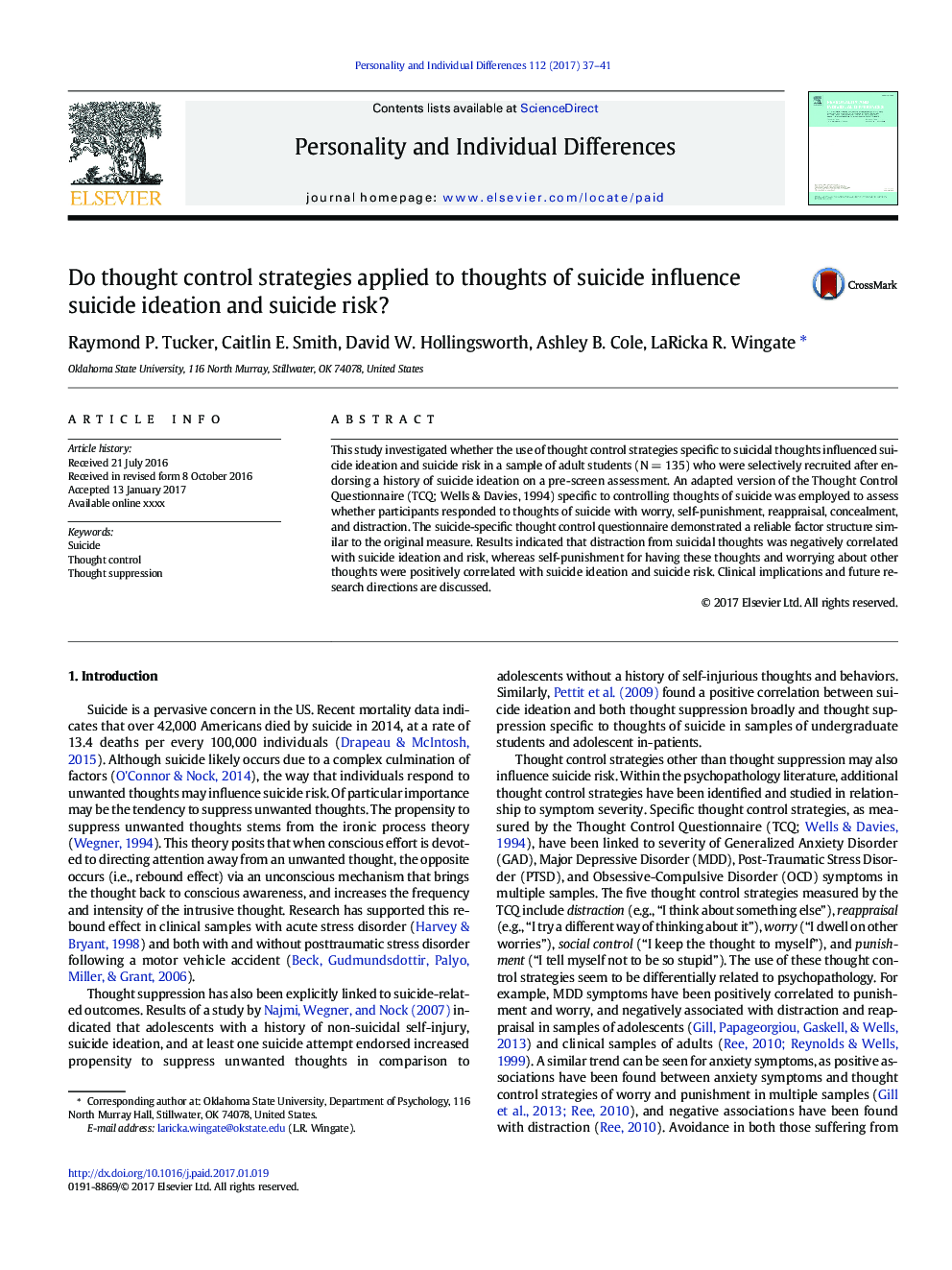| Article ID | Journal | Published Year | Pages | File Type |
|---|---|---|---|---|
| 5035720 | Personality and Individual Differences | 2017 | 5 Pages |
Abstract
This study investigated whether the use of thought control strategies specific to suicidal thoughts influenced suicide ideation and suicide risk in a sample of adult students (NÂ =Â 135) who were selectively recruited after endorsing a history of suicide ideation on a pre-screen assessment. An adapted version of the Thought Control Questionnaire (TCQ; Wells & Davies, 1994) specific to controlling thoughts of suicide was employed to assess whether participants responded to thoughts of suicide with worry, self-punishment, reappraisal, concealment, and distraction. The suicide-specific thought control questionnaire demonstrated a reliable factor structure similar to the original measure. Results indicated that distraction from suicidal thoughts was negatively correlated with suicide ideation and risk, whereas self-punishment for having these thoughts and worrying about other thoughts were positively correlated with suicide ideation and suicide risk. Clinical implications and future research directions are discussed.
Related Topics
Life Sciences
Neuroscience
Behavioral Neuroscience
Authors
Raymond P. Tucker, Caitlin E. Smith, David W. Hollingsworth, Ashley B. Cole, LaRicka R. Wingate,
